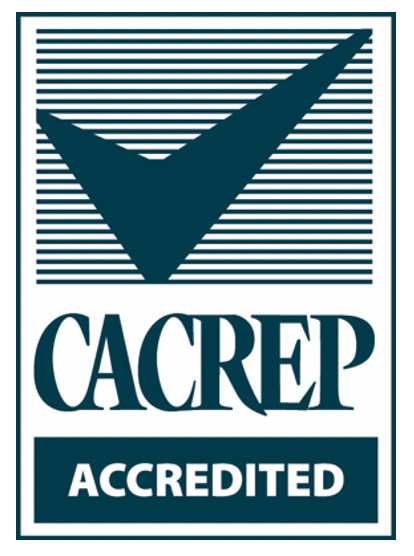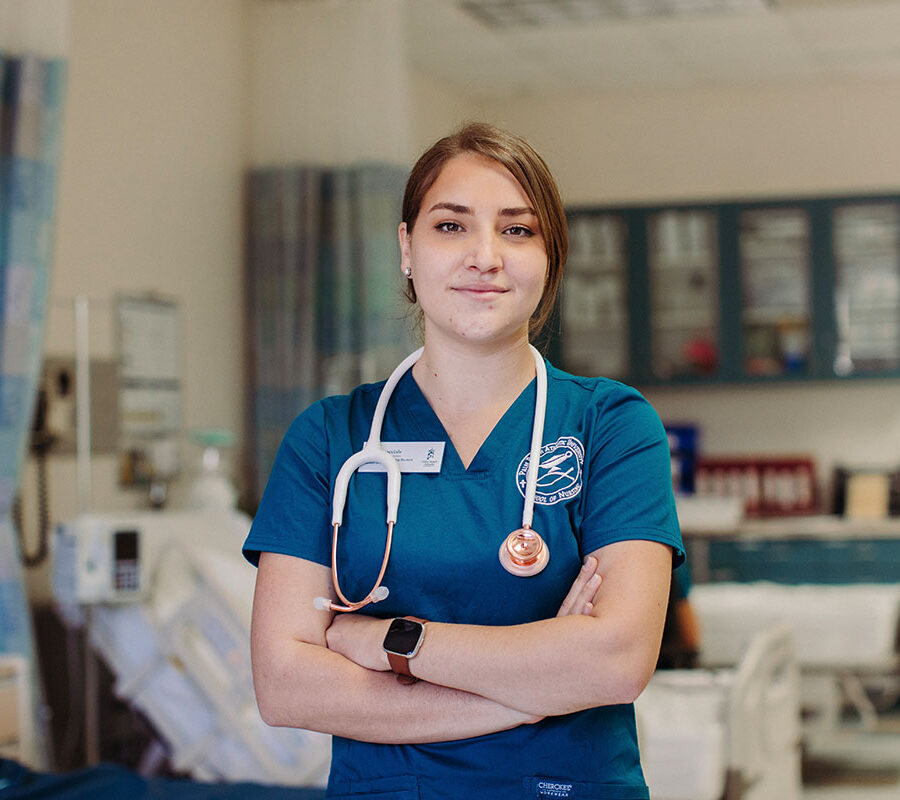Why Study Clinical Mental Health Counseling at PBA?
Building on PBA’s values, the knowledge and experience of counseling and helping professions, and our profound grounding in our Christian faith, the M.S. in Clinical Mental Health Counseling program prepares you for a meaningful and long-lasting career.
You’ll prepare for clinical licensure and a broad variety of professional contexts through our rigorous academic curriculum, field-based experiential learning, personal growth experiences, and close mentoring relationships with highly skilled faculty.
- Heritage of Faith: Practice maintaining a distinctively Christian and clinically professional identity.
- Clinical Licensure: Our program is structured to meet the requirements for Mental Health Counseling or School Counseling licensure in the State of Florida.
- Specialize: Follow the Clinical Mental Health Counseling track, add one of four optional concentrations, or advance your credentials with a non-degree certificate.
- Diverse Service: Here in culturally, ethnically, and linguistically diverse South and Central Florida, you will serve clients, neighbors, and communities of all kinds.
Program Mission
The mission of the Counselor Education Program is to facilitate a holistic educational experience, through which students develop personal and professional qualities, competencies, ethical judgment, and spiritual awareness, as they prepare for professional service in school counseling, clinical mental health counseling, or for advanced study in a related field.

What You’ll Learn
With PBA’s clinical mental health counseling degree, you will:
- Exhibit proficient counseling skills to form and build on professional relationships within the context of clinical mental health counseling
- Use empirically based strategies to identify ethically, culturally, and developmentally appropriate preventions, interventions, and advocacy to treat mental health issues
- Develop and demonstrate appropriate professional dispositions expected of counselors
- Integrate theologically informed and spiritually sensitive interventions in counseling practice when appropriate and desired by clients
- Apply counseling knowledge, skills, and dispositions in professional practice.
Pathway to Professional Licensure
State licensure and certification requirements vary. The M.S. in Clinical Mental Health Counseling at PBA covers the coursework and experiential requirements for Mental Health Counseling or School Counseling licensure in Florida, but you may need to complete additional requirements to seek licensure in another state. Review complete state licensure requirements.
In tailoring our program to the State of Florida’s strict licensure standards, we ensure the academic rigor, professional experience, and overall quality of our clinical mental health counseling degree.
Program Details
The Master’s in Clinical Mental Health Counseling program is designed to prepare you for clinical licensure in Florida. You’ll become fluent in the foundations of clinical practice, including legal standards, assessments and testing, diagnosis and treatment, and diverse theories and techniques for specialized approaches related to groups, substance abuse, marriage and family systems, and more. You may also choose an optional concentration to further hone your studies to align with your career goals.
Review all courses for the M.S. in Mental Health Counseling.
To be considered for the clinical mental health counseling degree program at PBA, you need to demonstrate that you:
- Hold a baccalaureate degree from a regionally accredited institution
- Achieve undergraduate minimum GPA of 3.0 on a 4.0 scale with exceptions, on a case-by-case basis
- Submit:
- Online application
- Official transcript from college/university where bachelor’s degree was conferred and from college/university where prerequisite courses were taken
- Two confidential recommendation forms
- Essay (prompt provided)
- Faculty Interview
Note: Admission decision recommendations are made by the Counselor Education Program’s Faculty Selection Committee and include consideration of each applicant’s articulation of career goals, record of academic achievement, relevant preparation and experience, potential success in becoming a counselor, and attitude of openness to diverse cultures and people.
Statement of Diversity: PBA complies with all applicable federal and state nondiscrimination laws and does not engage in unlawful discrimination on the basis of age, gender, disability, veteran status, race, color or national origin in any employment practice, admissions, education program or educational activity. This nondiscrimination policy covers admissions, employment and access to and treatment in University programs, services and activities.
Begin your journey toward becoming a well rounded, thoughtful, and impactful mental health counselor at apply.pba.edu/apply.
At the bottom of the page, Create an account to create a new application. You will then:
- Create a new graduate application
- Select West Palm Beach OR Orlando as the campus/location
- Select the Counseling degree as the focus
- Select your entry term and year (Spring starts in January, Summer starts in May, and Fall starts in August).
- Fill in your personal information.
- Fill in contact information for recommendations. They will receive an email with instructions on submitting recommendations.
- Submit the application.
- After submission, a checklist will populate that keeps you abreast of your progress toward the completion of your application. It will alert you once your transcripts and recommendations have been received.
- Use the provided hyperlink to complete the required essay
- Fully completed applications will be reviewed and interviews scheduled. See the interview schedule below.
- Admission decisions will be communicated to applicants within 72 hours of interviews.
Interview Session Schedule
Interview dates for the M.S. in Clinical Mental Health Counseling program follow a consistent schedule:
9:45 – 10 a.m.– Complimentary coffee/tea (optional).
10 a.m. – Group Interview Session
- Introductions of faculty and all attendees
- PowerPoint presentation by faculty providing an overview of the program (specialization, concentrations, clinical experience, required courses, other assessments, class schedule, etc.)
11 a.m. – Individual Interview Session
- Individual interview with a program faculty member
12 p.m. – Question & Answer Session with Admissions and an alumnus
- Complimentary lunch
1 p.m. – Conclusion of Question & Answer Session
In the M.S. in Clinical Mental Health Counseling, you can learn in a traditional, residential format or through our online collaborative learning environment. All programs, concentrations, and certificates are available online and at both our West Palm Beach and Orlando campuses.
Your formative and summative assessments will take many forms, including but not limited to quizzes, exams, lectures, small-group discussions, presentations, research papers, role-playing activities, field experiences, and engagement with Canvas (PBA’s online learning management system).
Determine whether to pursue an optional concentration based on your existing work experience and long-term professional aspirations. The Master’s in Clinical Mental Health Counseling concentrations include:
- Crisis and Trauma Counseling—examine physiological effects of trauma and potential interventions
- Marriage and Family Studies—prepare for further education and work in marriage and family therapy
Apply your learned counseling knowledge in clinical settings through two hands-on, face-to-face experiential opportunities. These courses are designed to meet Florida’s Mental Health Counseling licensing requirements.
In the practicum course, you will work alongside an on-site licensed mental health professional and a university supervisor to complete a minimum of 100 clock hours, of which at least 40 hours must be direct service. You’ll further develop your skills and experience in a two-semester internship over 600+ clock hours, including a minimum of 240 hours of direct service. Review the full practicum and internship course requirements.
If you work or intend to work in substance abuse counseling, gain additional training in our Counselor Education Program, which can lead to CAP (Certified Addiction Professional) designation. CAP is a professional substance abuse credential for people who assess, develop, and provide substance abuse treatment services and plans.
NOTE: The Counselor Education Program will not directly certify you in addiction counseling; it helps you fulfill the educational requirement toward the CAP.
Pass Rates
Based on the student data from the 2017 cohort completion rate and credentialing exams:
Using state licensure verification tools, provided by Florida Board of Clinical Social Work, Marriage and Family Therapy and Mental Health Counseling, it was determined that 35/64 students obtained a license from the state of Florida. Some graduates were indicated as deceased, and some have remained registered interns – yet to be licensed. It is not known, at this time, how many (might) have sought/obtained a license in other states. Future outcome surveys will more accurately track this data, and also provide job placement rates.
Completion Rate
Using the standard 150% model for reporting completion rates of students, the following represents the most recent Palm Beach Atlantic University Clinical Mental Health Counseling completion rate.
For the 2017 CMH Cohort, 20 students graduated within 150% of normal time to graduate and 4 did not (83% vs 17%). This is counting any student who started in 2017 under CMH and finished their master’s degree within 150% time. Not all finished under CMH but they did finish at PBA. The breakdown of programs completed by the CMH 2017 Cohort is as follows:
Job Placement Rates
Based on the NACE First-Destination Survey Template, for the class of 2020-21: of the 22 graduates, 8 reported to be employed (6 in full-time and 2 in part-time employment), earning an average salary of $45,000 annually. These outcomes are commensurate to the university’s Business Administration master’s program which reported the same number of graduates and employment rates.
Jeremy Bonta, Ph.D., LMHC, Assistant Professor of Counseling; Director of Counselor Education Program*
Kathryn Bosso-Iandoli, Ph.D., LMHC, Assistant Professor of Counseling*
Stephan Brown, Ph.D., LMHC-S, NCC, Qualified Supervisor, Assistant Professor of Counseling*
Laura Rendon-Finnell, Ph.D. Candidate, LMHC-S, NCC, Qualified Supervisor, Instructor of Counseling; Clinical Director
Rachel Heffield, Ph.D., LPC, Associate Professor of Counseling*
Philip Henry, Ph.D., LP, Qualified Supervisor (MHC), Professor of Counseling; Department Chair, West Palm Beach Campus*
Ana Jaramillo de Graham, Ph.D., Assistant Professor of Counseling*
JoAnn Kutsukos, Ed.D., LMHC-S, CAP, Qualified Supervisor, Assistant Professor of Counseling*
Steven Vensel, Ph.D., LCSW, Qualified Supervisor (MHC, CSW, and MFT), Associate Professor*
* Denotes Core Faculty
Jacqueline French, Success Coach, Online Enrollment
Grecia Hernandez, Counseling Program Coordinator, School of Education and Behavioral Studies
Scott Rowan, Director of Graduate & Online Enrollment
Lisa Smith, Assistant to the Dean, Education Program Coordinator, School of Education and Behavioral Studies
Julie Visser, Success Coach, Online Enrollment
Learn more about your classes and requirements in the course catalog.
Accreditation
Palm Beach Atlantic University is accredited by the Southern Association of Colleges and Schools Commission on Colleges (SACSCOC). The PBA M.S. degree in Counseling (specialization in Clinical Mental Health Counseling and School Counseling) is designed to meet the current academic requirements for the state of Florida to pursue a license as a mental health counselor or certification as a school counselor, respectively. Licensure/certification varies from state to state and graduates should be prepared to abide by additional requirements when seeking licensure/certification in a state other than Florida.
Palm Beach Atlantic University’s Master of Science in Clinical Mental Health Counseling is accredited by the Council of Accreditation of Counseling and Related Educational Program (CACREP), located at 500 Montgomery Street, Suite 350, Alexandria, VA 22314. Accreditation has been granted for the period, July 13, 2022 – March 31, 2032
Counseling Careers
Serve individuals and communities in a wide variety of settings, including schools and universities, community agencies, private practices, crisis centers, humanitarian organizations, and government agencies.
The Master’s in Clinical Mental Health Counseling at PBA equips you for professional licensure in the State of Florida and sets you on a path toward success if you choose to pursue licensure or certification in another jurisdiction. You’ll be well-positioned to meet the high demand for mental health counselors, which is projected to grow by 18% over the next decade.
Continued Learning Courses with the Counselor Education Program
Upcoming Events:
- November 8 — OCD Scrupulosity — Dr. Jeremy Bonta
- January 17 — Anti-Human Trafficking: Methods for Prevention and Solutions for Clinicians — Bonnie Jo Daniels, LMCH
- February 21 — Therapy, the Brain and the Body — Dr. Katie Bosso-Iandoli and Dr. Phil Henry
- March 21 — Working with Children and Adolescents of Sex Trafficking — Local and national leaders
- April 11 — Recovery Palooza — Dr. Phil Henry and local organizations and leaders
Event Details:
All events are in Upper Weyenberg from 9:00 to 11:00 am. Admission is free, with breakfast included.
Upcoming Trainings:
- January 7-11 — Integrating EMDR into your Clinical Practice — Roy Kiessling, LISW
For more information or to register, contact Grecia Hernandez at grecia_hernandez@pba.edu.




